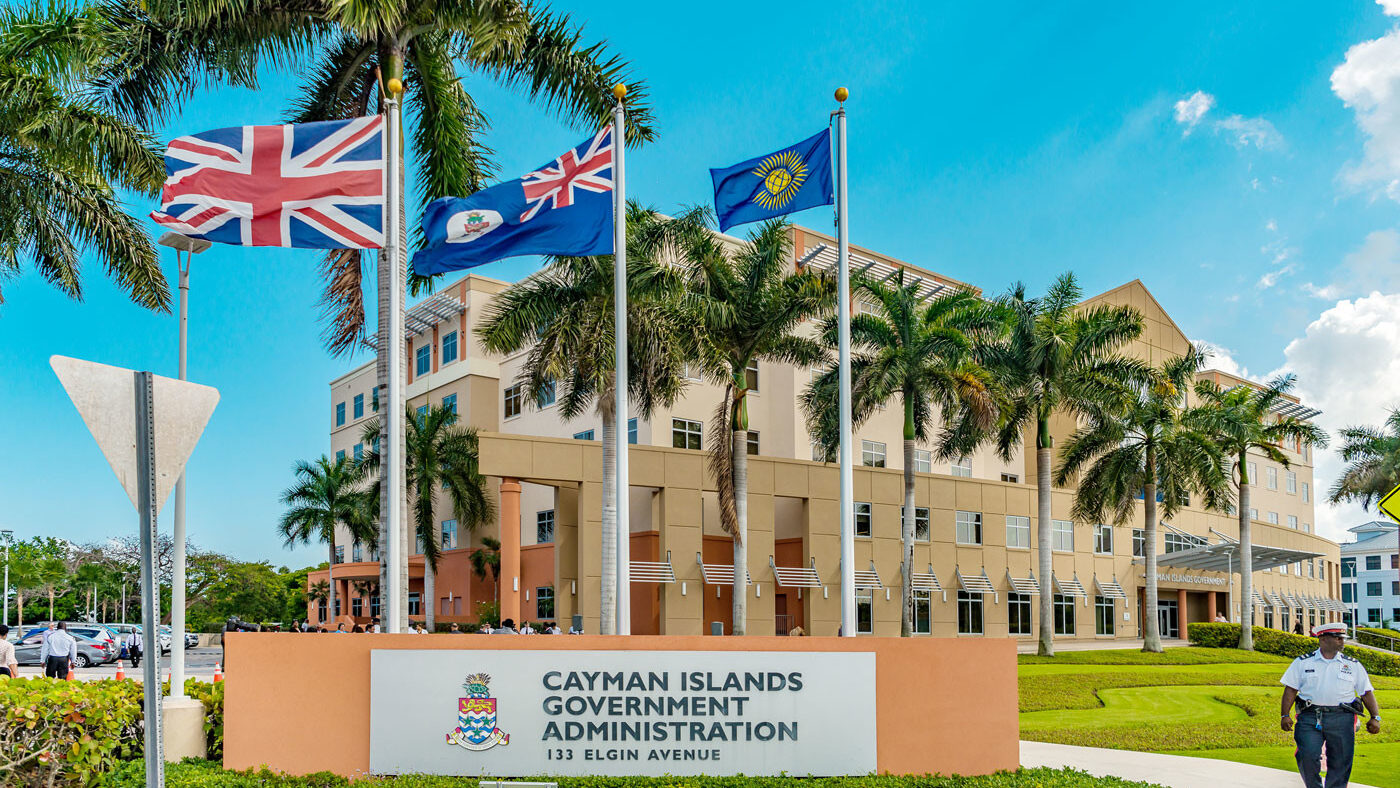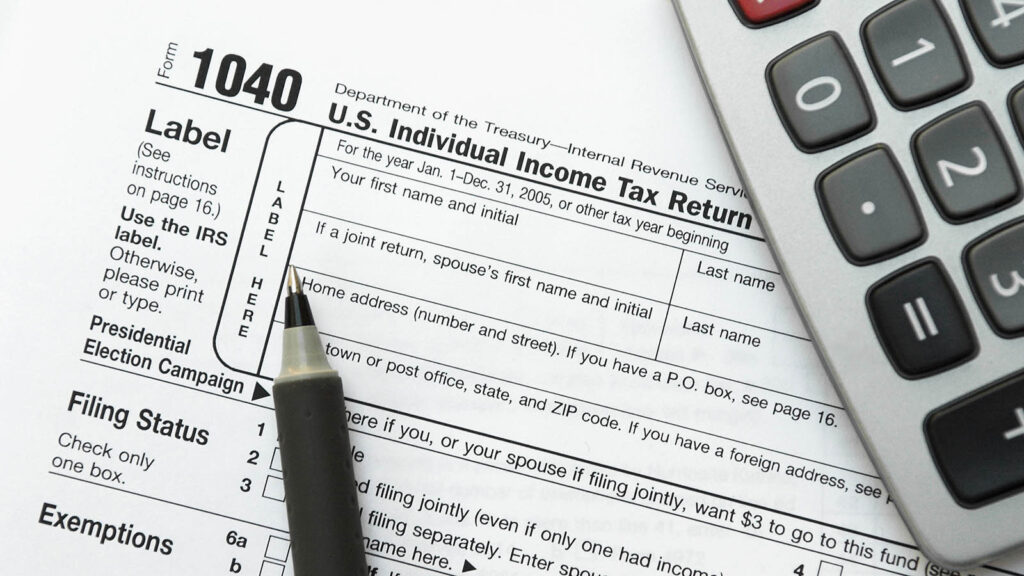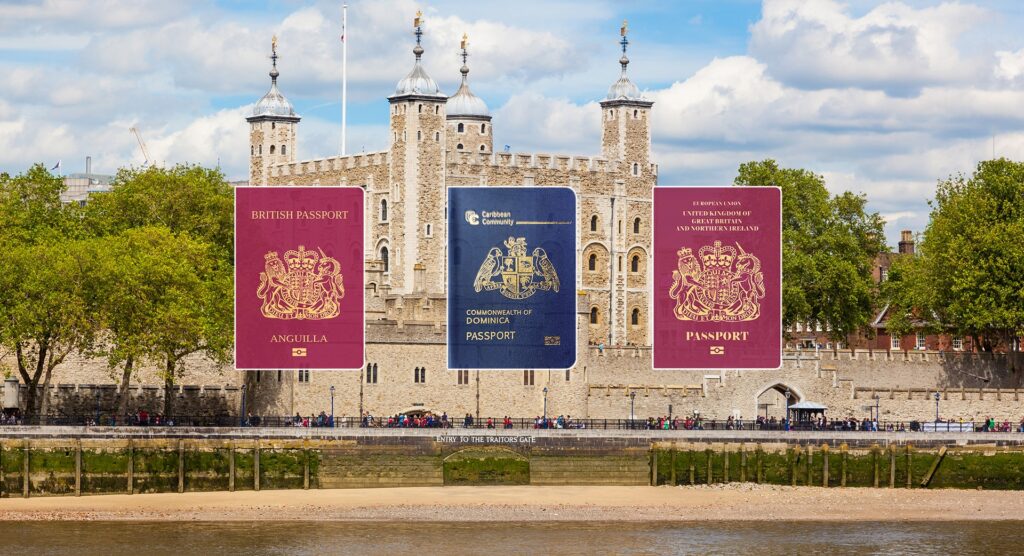Navigating the waters of tax residence can seem daunting for most. But, it’s crucial for ensuring you’re on the right side of the law and making the most of your finances. Whether you’re moving abroad, travelling across borders, or just curious about how it works, understanding your tax residency status is key. Your country of tax residence determines who has the right to tax your income, and it’s not always as simple as where you live. Different countries have different rules on non resident withholding tax, and other rules for non resident taxes. Also, the number of days you spend in a country, your ties to it, and your intent can all play a part. Let’s dive into the essentials of tax residence so you can confidently navigate your obligations and opportunities.
What is Tax Residence?
Understanding your tax residence is pivotal in navigating the complexities of tax obligations and opportunities. Simply put, tax residence refers to the country where you are considered a resident for tax purposes. This designation significantly influences how much tax you’ll owe and to which government it’s payable. It’s crucial to note that being a tax resident in one country doesn’t preclude you from owing taxes in another. This is especially true if you generate income across borders.
Several factors determine tax residence, and these can vary markedly from one jurisdiction to another. Generally, the criteria include:
- The number of days you’ve spent in the country within a given tax year.
- Your ties to the country, such as family, employment, or property.
- Your intent or purpose of stay.
For instance, the UK employs a the (SRT) test which considers days spent in the country and connections to it. Meanwhile, the US bases tax residence on the substantial presence test, factoring in the number of days present in the US over a three-year period.
Here are key points to remember:
- Physical presence and purpose of stay are pivotal in determining your tax residence.
- Dual residency is possible, potentially complicating your tax situation.
- Understanding the tax treaty network of your home and host countries can offer insights into avoiding double taxation.
Since laws and definitions around tax residence can shift, keeping abreast of the latest rules is advisable. Engaging with a tax professional who can interpret these laws in the context of your personal circumstances might save you a significant amount of money and trouble.
Importance of Determining Tax Residence

Determining your tax residence is more than a bureaucratic necessity; it’s a pivotal decision that influences your financial landscape. Understanding where you stand in the eyes of tax authorities can significantly affect your tax obligations and opportunities for benefits.
Impact on Tax Obligations
When establishing your tax residence, you’re mapping out your fiscal duties to a particular jurisdiction. This is not just about where you pay your taxes but also about how much you pay. Countries have different tax rates and allowances, and your tax residence determines which ones apply to you. For instance, some countries tax residents on their worldwide income, while non-residents are only taxed on local income sourced.
Consider the following key aspects:
- Tax Rates: Knowing your tax residence can help you anticipate the tax rate applied to your income.
- Double Taxation: Without a clear tax residence, you might find yourself in situations of double taxation—paying taxes in two countries for the same income.
- Exemptions and Deductions: Different tax jurisdictions offer various exemptions and deductions. Establishing your tax residence can unlock these potential savings.
Impact on Tax Treaty Benefits
Many countries have tax treaties with others to prevent double taxation and reduce tax evasion. Your status as a resident for tax purposes can make you eligible for these treaty benefits, which can lead to significant tax savings. These benefits often include reduced withholding tax rates on dividends, interests, and royalties, or the elimination of certain taxes altogether.
Here are reasons why understanding tax treaties is crucial:
- Reduced Tax Withholding: You might lower the withholding taxes on foreign incomes by establishing tax residence in a country with favourable treaty benefits.
- Access to Foreign Tax Credits: Tax residents often qualify for foreign tax credits, granting relief from double taxation on income taxed both abroad and in the residence country.
Understanding and determining your tax residence is a complex process that varies significantly from one jurisdiction to another. You must stay well-informed and possibly seek professional advice to navigate this landscape effectively. By doing so, you’ll not only ensure compliance but also optimise your tax position.
Factors Considered in Determining Tax Residence

Physical Presence: A Primary Consideration
One of the primary indicators of tax residence is the amount of time you spend in a country. Typically, spending over 183 days in a country within a calendar year can establish you as a tax resident, subjecting you to that country’s tax laws. However, this threshold varies globally, making it essential to maintain accurate records of your days spent in each country to ensure compliance with local tax regulations.
The Role of a Permanent Home
The availability of a permanent home in a country is a significant marker of tax residence. Tax authorities look at whether you have a dwelling that consistently remains at your disposal, which could either be owned or leased. The concept of a “permanent home” extends beyond mere ownership, emphasizing the stability and permanence of your residential ties to a country.
Centre of Vital Interests: Ties That Bind
Analyzing where your personal and economic ties are most substantial helps determine your center of vital interests—a critical factor in establishing tax residency. This includes evaluating where your immediate family resides, where you conduct your business activities, and where your investments lie. If these core interests are predominantly located in a specific country, it likely constitutes your tax residence.
Impact of Nationality and Citizenship
Although not the sole determinant, your nationality or citizenship can play a role in defining your tax residency status. Certain countries, like the United States, tax their citizens on a global income basis, regardless of where they live. This approach underscores the importance of understanding how your citizenship impacts your tax obligations. This is particularly true for those holding multiple citizenship or residing abroad.
Navigating the complexities of tax residence requires a nuanced understanding of these and other factors. It’s about piecing together a mosaic of personal, economic, and legal ties to determine where your tax responsibilities lie. For individuals and families living and working across borders, grasping these determinants is essential for managing tax liabilities effectively and planning for a secure financial future.
Other Relevant Factors
Besides the main criteria mentioned above, tax authorities may consider various other aspects such as:
- Your habitual abode
- Where you are registered to vote
- The location where you have your most substantial assets or investments
- Where you have social ties, like memberships in clubs or associations
Each of these factors can tip the scales in determining your tax residence. It’s clear that establishing tax residence is multifaceted and varies significantly across different jurisdictions. Due to the complexity of tax laws and the continuous changes they undergo, staying well-informed and consulting with tax professionals is indispensable.
Residency Rules in Different Countries for Taxation

Tax laws vary significantly across the globe, with each country having its own set of rules to determine an individual’s tax residence status. Understanding these rules is crucial because it can greatly affect your tax liabilities and benefits. Here, we’ll delve into how the United States, United Kingdom, Australia, and Canada determine tax residence.
United States
In the US, the Substantial Presence Test is a primary method used to determine tax residence. You’re considered a resident for tax purposes if you’ve been physically present in the US for at least 31 days during the current year and 183 days during the three-year period that includes the current year and the two years immediately before that. The count of 183 days includes all the days you were present in the current year, plus 1/3 of the days you were present in the first year before the current year, and 1/6 of the days you were present in the second year before the current year. However, exceptions apply, such as for diplomatic presence or for students under specific visas.
United Kingdom
The UK uses the Statutory Residence Test (SRT) to determine tax residency, comprising various tests. Some include the Automatic Overseas Test, the Automatic Residence Test, and the Sufficient Ties Test. You’re considered a UK resident for tax purposes if you spend 183 days or more in the UK during the tax year or if your only home is in the UK. The SRT is detailed, considering factors like work ties, family ties, and accommodations, making it essential to assess your situation carefully against these criteria.
Australia
Australia’s approach to tax residence is centered around the concept of Residence by Ordinary Concepts. You’re an Australian resident for tax purposes if you reside in Australia. This involves an examination of your physical presence, intention, and purpose of stay, among other factors. Additionally, specific tests like the Domicile Test of residency, the 183-day test, and many other test can apply. The Australian Taxation Office (ATO) looks at your circumstances as a whole, meaning staying informed and perhaps seeking professional advice is key to understanding your status.
Canada
Canada determines tax residence through the Primary Ties and Secondary Ties approach. Primary ties include owning a home in Canada, having a spouse or common-law partner, and dependents residing in Canada. Secondary ties can include personal property in Canada, social ties, economic ties, and a Canadian driver’s licence among others. If you have significant residential ties to Canada, you’re likely considered a resident for tax purposes. It’s important to note that even if you’re not present in Canada for 183 days or more, you can still be considered a resident based on these ties.
Best Countries to Secure Tax Residency

Determining where to secure tax residency can significantly impact your financial landscape, especially if you’re looking for ways to optimize your tax obligations. Here’s a closer look at some of the best countries to consider for securing tax residency, each with its unique benefits.
United Arab Emirates Tax Residency
The UAE is renowned for its zero personal income tax, making it an attractive option for tax residency. Securing tax residency in the UAE involves obtaining a residency visa, which you can get through employment, starting a business, or buying property in the country. The UAE doesn’t just offer tax advantages; it also provides a high standard of living and a strategic location for business ventures in the Middle East.
Cayman Islands Tax Residency
Famous for being a tax haven, the Cayman Islands offer tax residency with no direct taxes. This means no income, capital gains, or property taxes are levied on residents. You can become a tax resident by obtaining a residency permit, which can be achieved through investment in real estate or by proving substantial financial self-sufficiency. The Cayman Islands are not only about financial benefits but also boast pristine beaches and a vibrant expat community.
Anguilla Tax Residency
Anguilla is another Caribbean gem that offers an attractive tax residency programme. Similar to the Cayman Islands, Anguilla imposes no direct taxes on its residents. Individuals can invest in the country’s property market or participate in its Business Investment Programme to secure tax residency. Anguilla is known for its serene environment, making it a perfect tranquil escape for tax residents.
Antigua and Barbuda Tax Residency

Antigua and Barbuda offer a path to tax residency that includes no personal income tax for residents. Achieving tax residency can be done through the Citizenship by Investment Programme or by an annual flat tax program. Besides the tax incentives, Antigua and Barbuda provide beautiful landscapes and a plethora of leisure activities, making it an ideal location for both financial and lifestyle reasons.
Malaysia Tax Residency
Malaysia offers a unique opportunity for tax residency through its Malaysia My Second Home (MM2H) programme. While not tax-free, Malaysia offers a favourable tax system based on territorial income, meaning foreign-sourced income is not taxed. This, combined with the Malaysia MM2H programme’s relatively low living cost and high quality of life, makes Malaysia an appealing choice for those seeking tax residency in Asia.
Malta Tax Residency
Malta stands out in the EU for its tax residency programmes, offering various schemes designed to attract expats and retirees. One of the most notable is the Malta Residence and Visa Programme, which requires an investment in property and bonds. Malta’s taxation is based on domicile and remittance, allowing favourable conditions for foreign income not brought into the country. Its rich culture, Mediterranean lifestyle, and English-speaking populace make it an attractive destination for tax residents.
Each of these countries offers unique advantages for securing tax residency. From zero personal income tax in places like the UAE and the Cayman Islands to favourable tax systems and quality of life in Malaysia and Malta. When considering where to establish tax residency, weighing the financial perks against other factors such as lifestyle, investment, and legal obligations is vital. Consulting with a tax professional familiar with international tax laws can provide you with tailored advice to decide on the best country for your tax residency.
Steps to Determine Tax Residency

Determining your tax residency is a crucial step in understanding your tax obligations and taking advantage of potential tax benefits. The process can be complex, given the varying criteria across different countries. However, by following these general steps, you’ll be better positioned to ascertain your tax status.
Identify Country-Specific Rules: Initially, it’s important to investigate the specific regulations of each country you have ties to. Countries like the UK, US, Australia, and Canada have distinct rules for determining tax residency. Familiarise yourself with terms like the Substantial Presence Test in the US or the Statutory Residence Test in the UK to start your journey on solid footing.
Evaluate Your Physical Presence: Most countries consider how much time you’ve spent within their borders during the tax year. Document the number of days you’ve been present in each country, ensuring you’re aware of the thresholds that might change your residency status.
- Days present in the current year
- Days present in the preceding year
Assess Your Personal Ties: Aside from physical presence, evaluate your personal and economic ties. Owning property or having family or dependents in a country can all influence your tax residency status. List down your ties to each country to weigh their impact.
Consult a Tax Professional: Given the complexity and potential for change in tax laws, reaching out to a tax advisor or accountant who specialises in international tax laws is advisable. They can provide personalised advice and help you navigate the specific requirements and paperwork involved.
After gathering this information and consulting with a professional, you’ll be better equipped to understand your status and take the necessary steps towards compliance or optimising your tax situation. Remember, staying informed and proactive is key when dealing with tax residency matters.
Conclusion

Navigating the complexities of tax residence can significantly impact your financial landscape. Understanding where you stand in terms of tax obligations and opportunities is crucial in today’s globalised world. Whether you’re considering a move abroad or looking to optimise your tax situation, it’s essential to stay informed and seek expert advice. With professionals like Dan Merriam and the team at Offshore Freedom, you’re not just finding a way to comply with the laws but also exploring avenues to enhance your financial wellbeing. Remember, the right approach and knowledge can turn tax residence from a confusing obligation into a strategic advantage. Don’t hesitate to reach out and take control of your tax residency status today.
Learn More
Offshore Freedom™ is a boutique coaching and consulting firm that helps investors and entrepreneurs live and invest internationally. We help our clients grow their businesses, pay less taxes, buy more real estate, and take advantage of global residency and citizenship by investment programs worldwide.
Schedule a 1 on 1 consultation with Dan Merriam, and let us help you design the life of your dreams and live the Offshore Freedom™ lifestyle. Ask questions and get answers about international real estate, tax planning, offshore banking, second residencies, citizenship by investment, lifestyle design and more.
This article is for informational purposes only; it should not be considered financial, tax planning, investment or legal advice. Consult a certified financial or investment professional in your jurisdiction of interest before making any major financial or investment decisions.
Writer in Tax Reduction, International Tax Planning, Tax Residency, Minimum Stay Requirement, Tax Residence, Travel, Citizenship by Investment, The Caribbean, Second Residence, Real Estate Investing, Asset Management, Lifestyle Planning, Countries with the Lowest Taxes, Company Formation, Offshore Banking, Asset Protection, Technology, Entrepreneurship


















